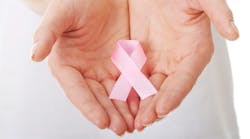Probiotics: emerging treatment for oral disease
By Michelle Hurlbutt, RDH, MSDH
Bacteria have earned a bad reputation among dental hygienists. Although bacteria are most often viewed as agents of disease, the truth is, we can’t live without bacteria in our lives. Probiotics are "live microorganisms, which, when administered in adequate amounts, confer a health benefit on the host."(1) They are available in several foods such as yogurt, fermented and unfermented milk, as well as in dietary supplements (tablets, capsules, powders, and liquids). Probiotics can be bacteria, molds and yeasts, but most are bacteria.
While the main field of study on probiotics has been in the area of gastrointestinal health, research on probiotics in treating the oral flora is emerging. Because of their association with a reduction in chronic inflammation and the displacement of pathogenic bacteria through bacterial adhesion, dental researchers have begun to look at probiotics as a means to decrease oral disease. Few randomized control trials have been conducted in the oral health area, with most being short in duration, with small sample sizes. Clinical relevance continues to be problem as probiotics work only as long as they are consumed on a regular basis. Once the probiotic is stopped, colonization does not persist. Two commercial probiotic products are currently available in the United States. Sunstar Americas is marketing GUM PerioBalance, a once daily lozenge with L. reuteri Prodentis claiming a reduction in moderate to severe plaque and the promotion of healthy teeth and gums as well as fighting bad breath.(2) A recent clinical trial demonstrated that once daily lozenge of L. reuteri Prodentis in combination with scaling and root planing reduced the amount of certain periodontal pathogens as well as reduced pocket depths and increased clinical attachment level compared with scaling and root planing alone.(3)A proprietary blend of Streptococcus uberis KJ2, S. oralis KJ3, and S. rattus JH145 is called ProBiora3 and is the active ingredient in a probiotic called EvoraPlus and EvoraKids. Developed and marketed by Oragenics, this probiotic is used twice daily and claims a reduction in periopathogens within the periodontal pocket as well as a reduction in S. mutans.(4-5)Oragenics has recently announced its intention to commence a second phase 1 clinical trial of a new genetically modified strain of bacteria that will colonize in the oral cavity, displacing cariogenic bacteria from a a one-time, five minute topical treatment.(6)With the focus on oral disease prevention and optimal health for all ages, there is good potential for probiotics. Dental hygienists are in an ideal position to monitor the research and guide patients on the potential benefits that probiotics can offer.
References
1. Food and Health Agricultural Organization of the United Nations and World Health Organization. Guidelines for the evaluation of probiotics in food. Joint FAO/WHO Working Group Report on Drafting Guidelines for the Evaluation of Probiotics in Food. 2002. Available from ftp.fao.org/es/esn/food/wgreport2.pdf2. GUM Periobalance. A breakthrough in oral healthcare. Retrieved on January 31, 2010, from www.periobalance.com/dentalprofessionals.aspx3. Vivekananda MR, Vandana KL, Bhat KG. Effect of the probiotic Lactobacilli reuteri (Prodentis) in the management of periodontal disease: a preliminary randomized clinical trial. J Oral Microbiol 2010, 2: 5344 - DOI: 10.3402/jom.v2i0.53444. Evoraplus. Healthy gums and teeth. Retrieved on January 31, 2010, from evoraplus.com/index.php5. Zahradnik RT, Magnusson I, Walker C, McDonell E, Hillman CH, Hillman JD. Preliminary assessment of safety and effectiveness in humans of ProBiora3, a probiotic mouthwash. J Appl Microbiol 2009; 107(2): 682-90.6. Yahoo Finance. Oragenics, Inc. announces a second phase 1 clinical trial of SMaRT replacement therapy. Retrieved on February 2, 2011 from finance.yahoo.com/news/Oragenics-Inc-Announces-a-bw-191407695.html
1. Food and Health Agricultural Organization of the United Nations and World Health Organization. Guidelines for the evaluation of probiotics in food. Joint FAO/WHO Working Group Report on Drafting Guidelines for the Evaluation of Probiotics in Food. 2002. Available from ftp.fao.org/es/esn/food/wgreport2.pdf2. GUM Periobalance. A breakthrough in oral healthcare. Retrieved on January 31, 2010, from www.periobalance.com/dentalprofessionals.aspx3. Vivekananda MR, Vandana KL, Bhat KG. Effect of the probiotic Lactobacilli reuteri (Prodentis) in the management of periodontal disease: a preliminary randomized clinical trial. J Oral Microbiol 2010, 2: 5344 - DOI: 10.3402/jom.v2i0.53444. Evoraplus. Healthy gums and teeth. Retrieved on January 31, 2010, from evoraplus.com/index.php5. Zahradnik RT, Magnusson I, Walker C, McDonell E, Hillman CH, Hillman JD. Preliminary assessment of safety and effectiveness in humans of ProBiora3, a probiotic mouthwash. J Appl Microbiol 2009; 107(2): 682-90.6. Yahoo Finance. Oragenics, Inc. announces a second phase 1 clinical trial of SMaRT replacement therapy. Retrieved on February 2, 2011 from finance.yahoo.com/news/Oragenics-Inc-Announces-a-bw-191407695.html
Michelle Hurlbutt, RDH, MSDH, currently practices clinical dental hygiene, is an Assistant Professor with Loma Linda University, Department of Dental Hygiene, and is the Program Director for the online BSDH-degree completion program.






